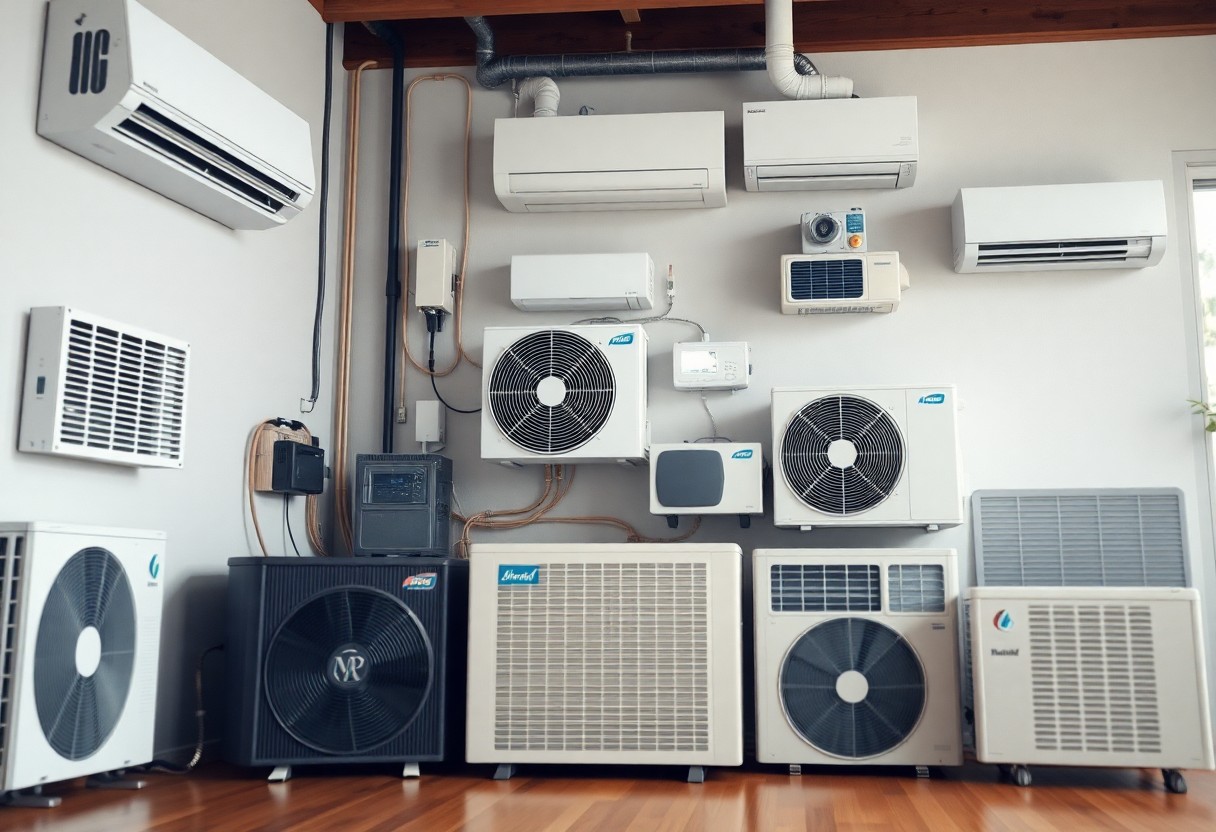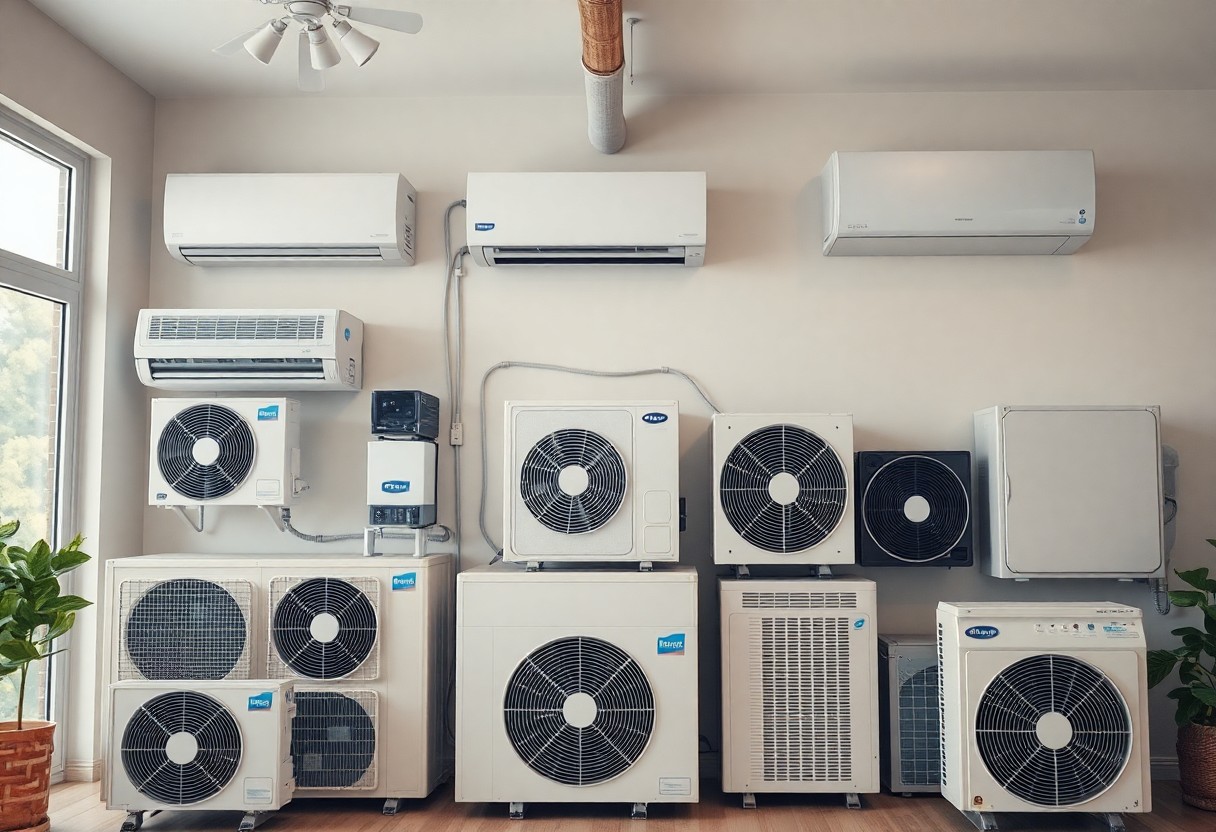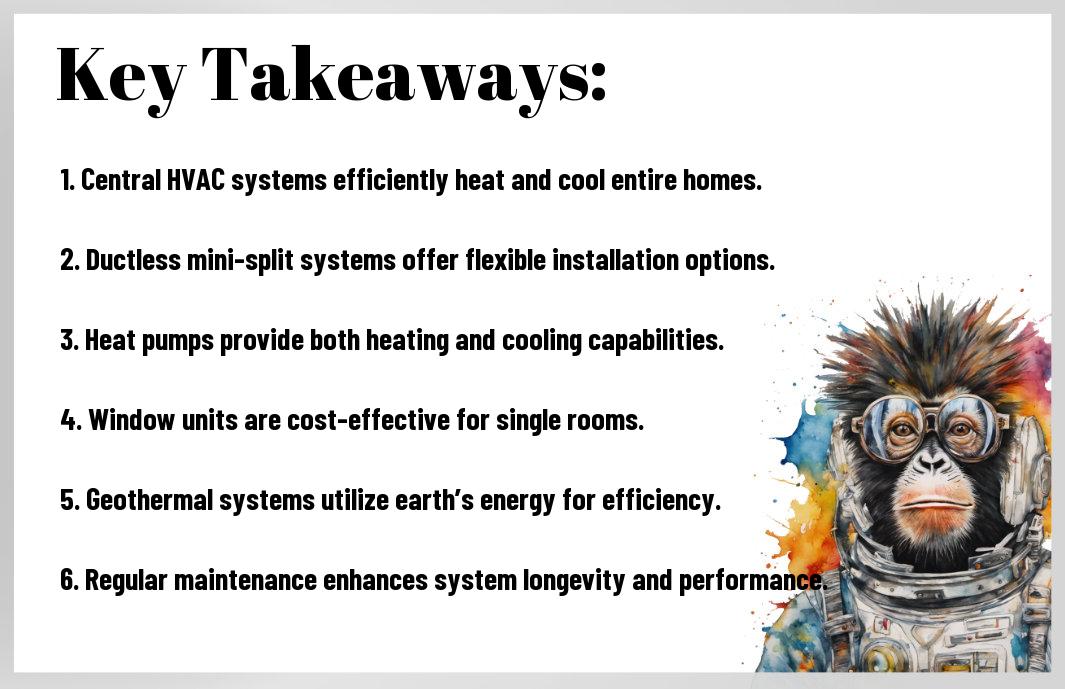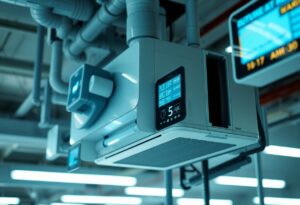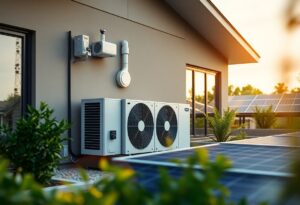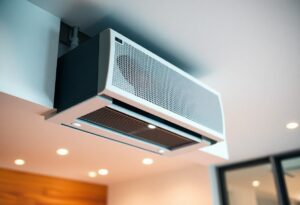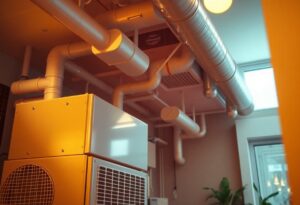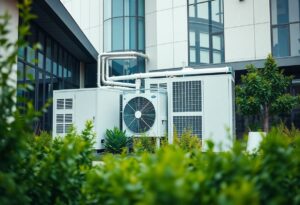Best Guide to the Different Types of HVAC System
Just as your comfort relies on the efficiency of your heating and cooling systems, understanding the various types of HVAC system can significantly impact your decision-making. In this guide, you will explore the strengths and weaknesses of each system, ensuring you choose the right one for your home or business. By delving into features such as energy efficiency and installation costs, you can ultimately enhance your indoor air quality while saving on future energy bills. Let’s navigate this crucial topic to empower your HVAC choices.
Key Takeaways:
- HVAC systems can be classified into various types, including central air conditioning, heat pumps, ductless systems, and more.
- Each type of system has its unique setup, efficiency ratings, and suitability for different spaces and climates.
- Central air conditioning units typically provide balanced cooling but require ductwork and may have higher installation costs.
- Heat pumps are versatile systems that can both heat and cool spaces, making them ideal for mild climates.
- Ductless mini-split systems offer flexibility in installation and zoning, suitable for homes without existing ductwork.
- Geothermal HVAC systems harness the earth’s consistent temperature, offering high energy efficiency but typically at a higher initial investment.
- Regular maintenance is crucial for all HVAC systems to ensure optimal performance and longevity.
Overview of HVAC Systems
While the term HVAC stands for Heating, Ventilation, and Air Conditioning, it encompasses a wide range of systems that work in tandem to provide comfort and cleanliness in indoor spaces. The integration of these components is designed to regulate temperature, control humidity, and ensure a steady flow of fresh air throughout your home or building. Understanding the various types of HVAC system is vital for selecting the right one for your specific needs, as each offers unique advantages and considerations based on factors such as location, building size, and budget.
What is HVAC?
Any system that contributes to the heating, cooling, and air quality of your indoor environment falls under the umbrella of HVAC. These systems can be as straightforward as a single-unit air conditioner or as complex as an integrated network of equipment. Depending on your specific requirements, your HVAC system can include components such as furnaces, heat pumps, air handlers, and ductwork, all working in concert to maintain a stable and comfortable atmosphere.
Importance of Proper HVAC Systems
An effective HVAC system is fundamental to ensuring both comfort and health in your living or working spaces. When equipped with the right system, you can benefit from energy efficiency, improved air quality, and consistent temperatures year-round. On the other hand, choosing an improper system or neglecting maintenance can lead to increased energy bills, discomfort due to temperature fluctuations, and even health issues stemming from poor air quality.
What you might not realize is that a well-designed and properly maintained HVAC system can significantly reduce your energy consumption, leading to lower utility costs and a reduced environmental footprint. Furthermore, a quality HVAC setup can prevent the buildup of dust, allergens, and humidity, creating a healthier indoor environment for you and your family. Therefore, investing in the right system and ensuring its efficiency is not just about comfort—it’s about enhancing your overall well-being.
Types of HVAC Systems
Even within the world of HVAC systems, there are a variety of choices that cater to different needs. When considering your options, you may want to take into account the size of your space, climate, and energy efficiency. Here is an overview of the main types:
| Central Air Conditioning Systems | Use ductwork to distribute cool air throughout your home. |
| Ductless Mini-Split Systems | Provide targeted cooling without needing ductwork. |
| Heat Pumps | Act as both a heater and air conditioner with a single unit. |
| Furnaces | Primarily used for heating, burning fuel or using electricity. |
| Hybrid Systems | Combine conventional heating with heat pump technology for efficiency. |
You should carefully consider these options when determining your HVAC setup to ensure it meets your specific requirements.
Central Air Conditioning Systems
Before exploring installation, it’s important to understand that central air conditioning systems are designed to cool your entire home using a network of ducts. This type of system operates by drawing in warm air, cooling it through the evaporator coil, and then redistributing it back through the ductwork. The efficiency of central air systems is often reflected in their SEER ratings, which measure energy efficiency.
While central air systems are highly effective, it is vital to ensure proper sizing and installation to avoid issues like humidity imbalance or energy waste. Consulting with a professional contractor can help you avoid these pitfalls, ensuring that your HVAC system operates at peak performance.
Ductless Mini-Split Systems
To cater to spaces where traditional ductwork is not feasible, ductless mini-split systems offer an excellent alternative. These systems consist of an outdoor condensing unit paired with one or more indoor air-handling units. Since they don’t require ductwork, they are less invasive and are usually easier to install. They allow for individual temperature control in different rooms, making them perfect for homes with varying heating and cooling demands.
Additionally, ductless mini-splits are energy-efficient and can reduce your utility bills significantly compared to traditional systems. Their compact design also provides a discreet look, contributing to a clean aesthetic in your space.
This flexibility and energy efficiency make ductless mini-splits a popular choice for both residential and commercial applications. Whether you want to cool a specific room or an entire multi-zone area, these systems can be tailored to meet your needs effectively.
Heat Pumps
Regarding heating and cooling, heat pumps stand out as versatile systems that can function effectively in both summer and winter. These systems work by transferring heat rather than generating it, making them an energy-efficient option. In cooler months, the heat pump extracts warmth from the outside air and transfers it indoors, while in the hotter months, it reverses the process to cool your living space.
However, heat pumps may struggle in areas with extremely low temperatures, which is something to consider based on your local climate. That said, advancements in heat pump technology have greatly increased their performance and efficiency even in cooler regions.
Pumps can be highly efficient alternatives to traditional heating systems, yielding significant savings on energy costs over time. These systems can be particularly beneficial for moderate climates where you may require both heating and cooling throughout the year.
Furnaces
To focus on heating furnaces are typically employed in colder climates due to their capability to effectively generate and distribute heat. Furnaces use fuel sources such as gas, oil, or electricity. While they predominantly serve to heat your space, some models come with innovative features that improve energy efficiency and reduce environmental impact.
It’s vital to choose the right type of furnace for your home, considering both the size of your space and the fuel type available to you. Additionally, regular maintenance and inspections can ensure your furnace operates safely and efficiently throughout its lifespan.
Another important aspect of furnaces is their ability to integrate with your existing HVAC systems. Many homeowners opt for dual-fuel systems that allow them to switch between gas and electric heating to optimize energy usage during different seasons.
Factors to Consider When Choosing an HVAC System
Unlike selecting a piece of furniture, choosing the right HVAC system requires careful consideration of various factors to ensure you make an informed decision. Your system needs to align with your unique requirements and preferences. Here are some key aspects to keep in mind:
- Home size: The size of your living space will affect the system you ultimately choose.
- Energy efficiency ratings: Understanding the efficiency of different HVAC systems can save you money in the long run.
- Environmental impact: Select a system that complements your commitment to sustainability.
- Budget: Consider not only the initial investment but also ongoing maintenance and utility costs.
Any of these factors could significantly impact your overall comfort and satisfaction with your HVAC system.
Home Size and Layout
System size and layout play a vital role in determining which type of HVAC system will work best for you. If your home has multiple floors or staggered levels, maintaining an even temperature throughout can be challenging. In such cases, you may want to consider a zoned system or one with customizable settings. Additionally, the total square footage and the number of rooms in your home will dictate the heating and cooling capacity required.
Furthermore, a well-designed system takes into account the layout of your home. For instance, open floor plans may benefit from larger units capable of circulating air more effectively. The proper sizing allows for optimal performance, preventing situations where the system may short-cycle or be overworked, both of which can lead to higher energy costs and increased wear and tear on equipment.
Energy Efficiency Ratings
Behind the purchase price, energy efficiency ratings are key indicators of long-term savings. Comprehensive HVAC systems come with various efficiency metrics, such as SEER (Seasonal Energy Efficiency Ratio) for cooling and AFUE (Annual Fuel Utilization Efficiency) for heating. Higher ratings signal better energy savings, ultimately leading to reduced utility bills and less environmental impact.
In fact, investing in a system with a high efficiency rating can cut your energy costs significantly. Some states even offer incentives for homeowners who choose energy-efficient equipment, further easing your financial commitment. Therefore, understanding these ratings can help you make a smart and informed decision when selecting the right HVAC system for your home.
Environmental Impact
Home efficiency is closely tied to your environmental impact. Choosing a system that prioritizes efficiency not only supports your personal energy-saving goals but also contributes positively to the planet. For instance, newer systems often utilize eco-friendly refrigerants that have a lesser effect on ozone depletion compared to older models. By making an eco-conscious choice, you’re actively lowering your carbon footprint.
Consequently, selecting an HVAC system that operates efficiently can play a significant role in conserving energy resources. As you weigh your options, consider how each system’s performance will not only affect your home but also contribute to broader environmental sustainability efforts. A conscious choice leads to collective benefits for both you and the environment, fostering a healthier planet for future generations.
Maintenance and Care for HVAC Systems
Many homeowners overlook the importance of proper maintenance for their HVAC systems, leading to inefficiencies and unexpected repairs. By prioritizing regular upkeep, you can extend the lifespan of your system, enhance its energy efficiency, and ensure a comfortable indoor environment. Engaging in routine checks and care not only saves you money in the long term but also contributes to a healthier home atmosphere.
Regular Maintenance Practices
About twice a year, ideally before the peak summer and winter seasons, you should perform routine maintenance on your HVAC system. This includes changing filters, cleaning the ductwork, and inspecting components like the evaporator and condenser coils. Ensuring your filters are clean allows your system to run more efficiently, improving airflow and reducing strain on the motor. Additionally, routinely checking for refrigerant leaks and ensuring proper drainage can help avoid more severe issues down the line.
Common Issues and Troubleshooting
Along your HVAC journey, you may encounter a few common issues that can disrupt your comfort and affect performance. For instance, if you notice insufficient heating or cooling, this could be due to a dirty filter or a malfunctioning thermostat. Regular inspections will help you identify these problems early on. Identifying signs of wear and tear can also prevent costly repairs and keep your system running efficiently.
Consequently, taking the time to troubleshoot minor issues can save you from having to call a technician more frequently. For example, if your unit is making unusual noises, it could indicate loose components or debris within the system. Addressing these matters quickly and comprehensively—whether through DIY fixes or professional help—will help ensure both your comfort and the longevity of your HVAC equipment. Keeping a close eye on performance indicators allows you to stay ahead of potential complications and maintain optimal airflow throughout your home.
Innovations in HVAC Technology
Your understanding of HVAC systems can significantly benefit from the latest innovations in technology that have transformed heating and cooling solutions in both residential and commercial spaces. These advancements not only enhance performance but also improve energy efficiency and contribute to a reduced carbon footprint. Smart HVAC technologies, for instance, are revolutionizing the way you manage your indoor climate, offering a level of control and convenience that was previously unimaginable.
Smart HVAC Systems
Above all, smart HVAC systems utilize advanced sensors, AI algorithms, and IoT connectivity to adapt to your lifestyle patterns and preferences. This means that your HVAC system can learn when you’re home or away and adjust settings accordingly to optimize energy usage. Not only does this lead to substantial savings on energy bills, but it also enhances your comfort by ensuring that your space is always at the ideal temperature. Furthermore, many smart systems provide valuable performance analytics, allowing you to monitor usage and detect any potential issues before they become major problems.
Sustainable Heating and Cooling Solutions
To make a positive impact on the environment while ensuring comfort, sustainable heating and cooling solutions are becoming increasingly popular. Technologies like geothermal heat pumps, solar-assisted HVAC systems, and ventilation heat recovery units use renewable energy sources to provide highly efficient heating and cooling options. These systems significantly reduce greenhouse gas emissions and dependency on fossil fuels, making them a wise choice for an eco-friendly lifestyle.
In addition, opting for sustainable heating and cooling solutions often leads to long-term cost savings. While the initial investment may be higher, the lower operating costs and available incentives can offset this expense over time. Additionally, many of these systems are designed with longevity in mind, so you’ll benefit from years of reliable performance. By choosing these technologies, you’re not just improving the comfort of your space but also actively participating in the global effort to promote energy efficiency and reduce environmental impact.
Conclusion
To wrap up, understanding the various types of HVAC system available can significantly enhance your decision-making process when it comes to selecting the right solution for your home or commercial space. You may find that options such as central air conditioning, ductless mini-splits, and heat pumps each offer unique advantages suited to different climates and building designs. By carefully considering your heating and cooling needs, as well as energy efficiency and installation costs, you can make a more informed choice that aligns with your specific requirements.
Additionally, being aware of the latest technologies and innovations in HVAC systems can empower you to select a system that not only improves indoor comfort but also optimizes energy consumption. Whether you are upgrading an existing system or installing a new one, the insights gained from this guide can serve as a solid foundation for assessing your options. Ultimately, taking the time to evaluate your HVAC choices will result in a highly efficient and comfortable environment tailored to your lifestyle.
FAQ
Q: What are the main types of HVAC systems available?
A: The primary types of HVAC systems include central air conditioning systems, split systems, ductless mini-split systems, heat pumps, and geothermal systems. Central air conditioning systems are ideal for large homes and offer consolidated cooling. Split systems consist of an outdoor compressor unit and indoor air handling units, while ductless mini-split systems provide flexibility for temperature control in specific rooms. Heat pumps serve both heating and cooling purposes, and geothermal systems utilize the earth’s consistent temperature for efficient climate control.
Q: How do I choose the right HVAC system for my home?
A: When opting for an HVAC system, consider factors such as the size of your home, the local climate, your budget, and your energy efficiency goals. A professional HVAC technician can perform a load calculation to determine the appropriate system size and may recommend options based on your specific conditions and needs.
Q: What is the difference between a heat pump and a traditional furnace?
A: Heat pumps are designed to transfer heat rather than generate it like traditional furnaces. In winter, a heat pump pulls heat from the outside air (even in cold temperatures) and moves it indoors, while in summer, it reverses the process. Traditional furnaces burn fuel to create heat, making them typically more effective in extremely cold climates but often less energy-efficient than heat pumps.
Q: Are ductless mini-split systems worth the investment?
A: Yes, ductless mini-split systems can be worth the investment, especially for homes without ductwork or for specific areas that require temperature control. They are energy-efficient, easy to install, and allow for zoning, meaning you can cool or heat only the rooms that are in use, potentially leading to lower energy bills.
Q: What maintenance do HVAC systems require?
A: Regular maintenance for HVAC systems includes changing or cleaning air filters every 1-3 months, inspecting and cleaning the evaporator and condenser coils, checking refrigerant levels, and ensuring that ductwork and vents are clear. Scheduled yearly inspections by a qualified technician can also enhance the system’s efficiency and prolong its lifespan.
Q: How does energy efficiency influence HVAC system selection?
A: Energy efficiency is a key consideration when choosing an HVAC system as it impacts both operational costs and environmental sustainability. Look for systems with high Seasonal Energy Efficiency Ratio (SEER) ratings for cooling and Annual Fuel Utilization Efficiency (AFUE) ratings for heating. Additionally, consider ENERGY STAR-certified units, which meet strict efficiency guidelines set by the EPA.
Q: Can HVAC systems improve indoor air quality?
A: Yes, many HVAC systems can improve indoor air quality through advanced filtration and ventilation features. HEPA filters, UV lights, and ventilation systems can help reduce allergens, dust, and pathogens, promoting a healthier living environment. Additionally, maintaining proper humidity levels through an HVAC system can further enhance air quality.
This post has been written by Team HVAC Talk Magazine. Stay informed and connected with the latest in HVAC—join us for expert advice, troubleshooting tips, and news updates. Don’t miss out; follow us now! #HVACExperts #HVACTips #StayInformed #HVACProTalk.
Learn more and join our mailing list for updates.
